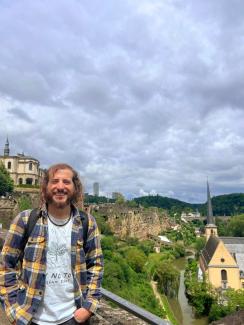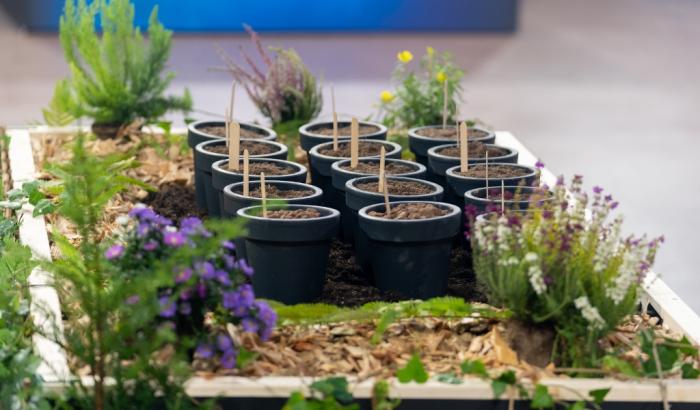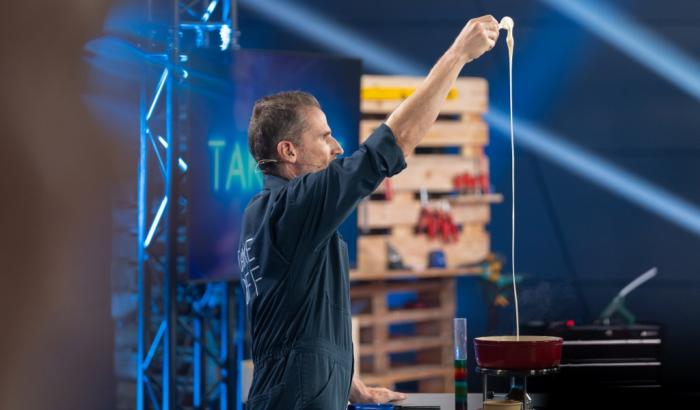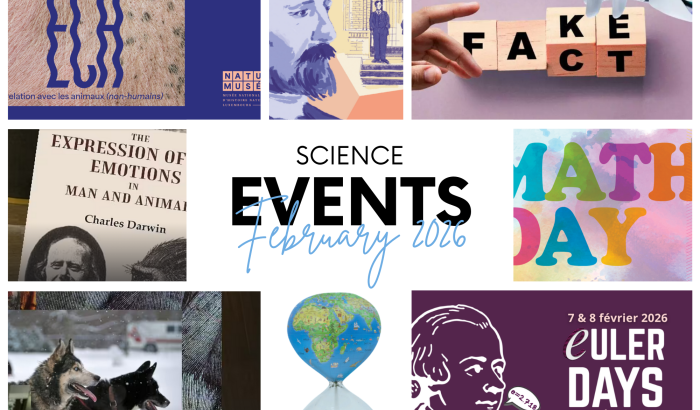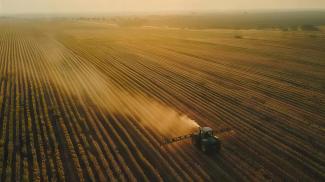
AdobeStock/furyon
Aerial view of crop fields being sprayed with pesticides by a tractor.
This article won the first place in the 2024 Science Writing Competition run by the University of Luxembourg in collaboration with science.lu.
Historically, humankind has sought ways to combat pests such as insects, rodents, fungi and unwanted plants; finding a solution in the use of chemicals known as pesticides. As pests grew more resistant, we were forced to develop more toxic and persistent pesticides. In 1962, the publication of Silent Spring opened the world’s eyes. In this book, Rachel Carson showed everyone that uncontrolled use of pesticides contaminated our waters, with chemicals getting into the food chain, harming animal populations, including humans, and causing diseases like cancer. In trying to fight pests, we generated a new one: pesticides are harmful and they seem to be everywhere.
The widespread use of these chemicals in the environment is a problem of increasing concern in many countries around the world. However, there are countries, like Luxembourg, which are considered green and clean. Why should people here worry about pesticides?
According to a 2022 STATEC report, more than half of the land surface in Luxembourg is used for agriculture, of which only 6% is organic, meaning that pesticides are not used on these lands. To put it simply, pesticides are applied on almost half of Luxembourg’s territory.
Where are pesticides found in Luxembourg?
It is not surprising to hear that there are pesticides in the agricultural soil of Luxembourg, but what about water and air? Researchers from the Luxembourg Center for Systems Biomedicine (LCSB) at the University of Luxembourg have confirmed the presence of 31 pesticides and their transformation products in water samples from rivers in Luxembourg. Another study found 14 pesticides in the air inside and around a house in Luxembourg.
Unfortunately, pesticides don't just stay in the environment. Scientists from the Luxembourg Institute of Science and Technology (LIST) have found them in pollen and bee bread. Regarding humans, it is well known that pesticides can be detected in our blood and urine. Moreover, researchers from the Luxembourg Institute of Health (LIH) went further, finding them in hair after their incorporation through blood. They found this not only in adults in Luxembourg but also in children. An interesting observation from this research was that at least 11 pesticides were found in all the children studied.
They leave but they might come back
The EU has approved hundreds of pesticides for use on crops. These chemicals have different properties that determine whether they stay in one place, move to another, resist degradation, or are destroyed. After being applied, they can evaporate into the air or drain through soil to rivers and travel far from the application point, contaminating new areas such as water sources or even other crops.
By consuming food, drinking water, or breathing air with pesticides, we can absorb these chemicals. Once in our bodies, they can accumulate in some tissues, such as fat or hair, or be eliminated in urine. Recently, we have learned that chemicals excreted in urine don’t just disappear. Wastewater treatment plants can’t completely remove them, and they can end up in the water we drink or use for watering crops, making their way back into our lives.
There is hope
Luckily, there are many ways to decrease our pesticides footprint on the environment. Nowadays, it is quite easy to find organic food in stores. In many places, there are farmers who locally produce pesticides-free vegetables, which is even better for the environment as they don’t require transportation. Particularly in Luxembourg, there are several options.
In addition, researchers from LIST are working on the development of biopesticides: pesticides derived from natural sources that naturally degrade in the environment, reducing the traditionally harmful effects by providing eco-friendly alternatives.
Knowledge is power. By being aware of this problem, we can start making a difference. From making small changes in our habits, such as consuming organic and local products, to demanding policymakers to take actions on this matter and to support researches working in the field. We can all contribute to fight the battle against this 21st-century pest.
Author: Franco Catuogno (Luxembourg Institute of Health)
Editor: Michèle Weber (FNR)
Infobox
Carson, R. (2000). Silent Spring. Penguin Classics.
STATEC. (2023). Luxembourg in figures 2023. STATEC. https://statistiques.public.lu/en/actualites/2023/luxembourg-en-chiffres-2023.html(Beyer, Lenouvel et al. 2018)
Beyer, M., et al. (2018). "Pesticide residue profiles in bee bread and pollen samples and the survival of honeybee colonies-a case study from Luxembourg." Environ Sci Pollut Res Int 25(32): 32163-32177.
Iglesias-González, A., et al. (2022). "Investigating children’s chemical exposome – Description and possible determinants of exposure in the region of Luxembourg based on hair analysis." Environment International 165.
Krier, J., et al. (2022). "Discovering pesticides and their TPs in Luxembourg waters using open cheminformatics approaches." Environ Int 158: 106885.
Raeppel, C., et al. (2016). "Pesticide detection in air samples from contrasted houses and in their inhabitants' hair." Sci Total Environ 544: 845-852.

